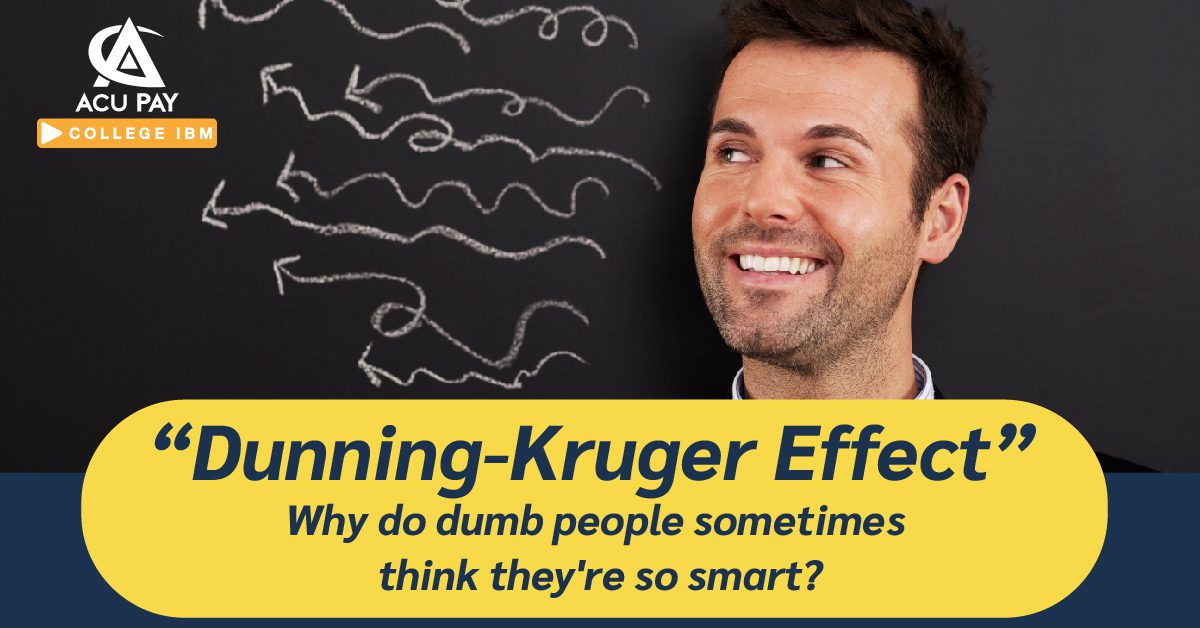

Psychologists state that the Dunning-Kruger Effect is in the mind of the speaker who thinks they are talented and smart, but it is not what they think they are. It can be simply said that they are not smart but they think they are.
In 1999, David Dunning and Justin Kruger conducted research on this idea. They made the participants estimate their test results according to their thinking. It turns out that participants with low scores often estimated their test result higher than the actual result. On the other hand, those who estimated their scores very low actually got higher scores than what they estimated.
To prove this assumption, Dunning and Kruger made those who estimated their scores high and low to do the test of another party to check the differences of the scores. It turned out that those participants who got low scores still rated their result high instead of rating it based on their real test scores because they still thought that their answers were correct and still rated their scores the same.
In conclusion, this was caused by Cognitive biases that make them believe they know everything and are the most intelligent. Even though the test result showed that they received low scores, they still believed in what they thought.
Psychologists will compare the graph showing the variation of knowledge and confidence as
In the beginning, people were full of curiosity, and doubts, but they were not confident yet, making them eager to find answers. Once they tried it, they realized that it was not as difficult as they thought. Thus, there was a rapid increase in confidence, although, in fact, it was fundamental.
After learning, people think that they have learned most of everything. They often feel that they know more than others, and feel this matter is easy, so they may express more boasting than others.
After learning to a certain extent, when they receive new information that they did not know before, or when someone asks for details about what they have learned but cannot answer, they may doubt whether they know enough about it or not and may quickly feel a lack of confidence.
After feeling like they don’t know enough, or you don’t know that much. Some may give up and return to the mountaintop of stupidity again. If you can repent, that person is someone who opens his heart to learn new things and moves on.
After admitting that he has little knowledge, it will be a new beginning for them to want to learn and act more. This will make them eager to study and not boast of their knowledge.
As they get through that and continue to study, they will have the right level of confidence. Despite how confident they are, they are still determined to continue to study and update what is happening around them endlessly.
For those who are already able to fix it by accepting and learning that we can never know everything in the world. Everyone can adapt and open up to new things that come through, it makes us a person with a positive attitude and a truly knowledgeable person.

MAKE A GREAT DAY WITH ACU PAY.